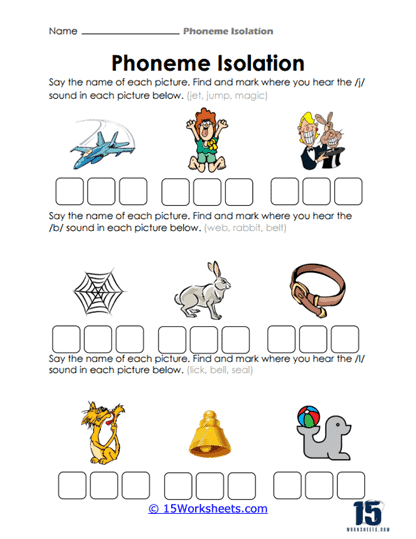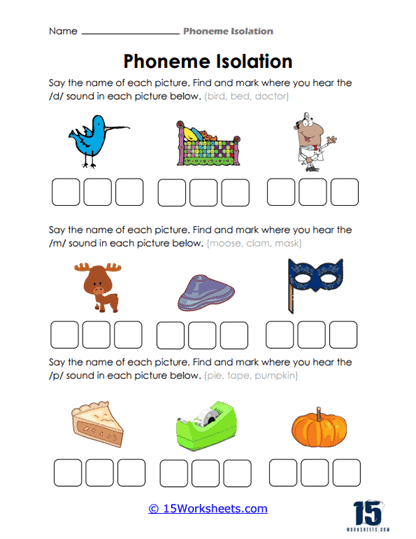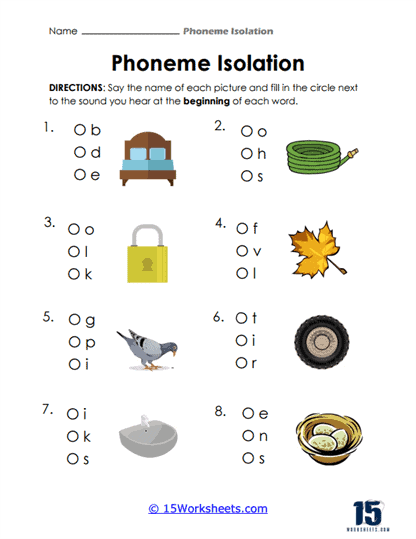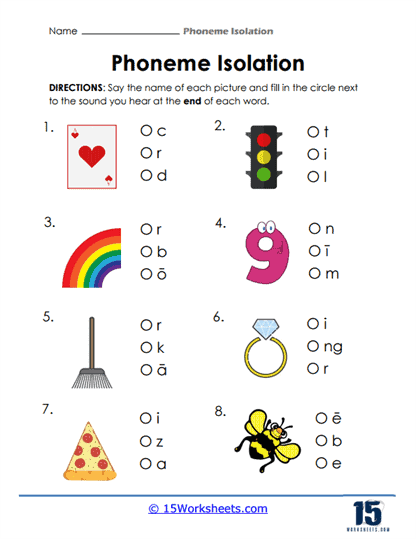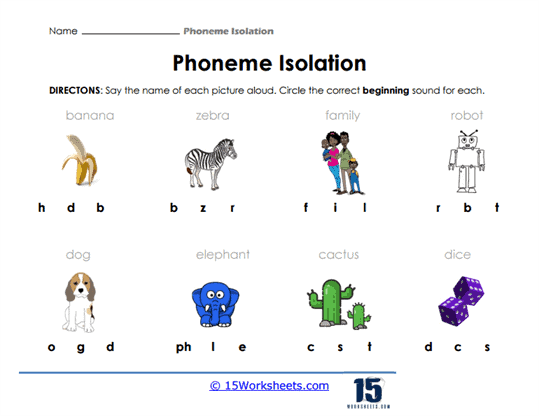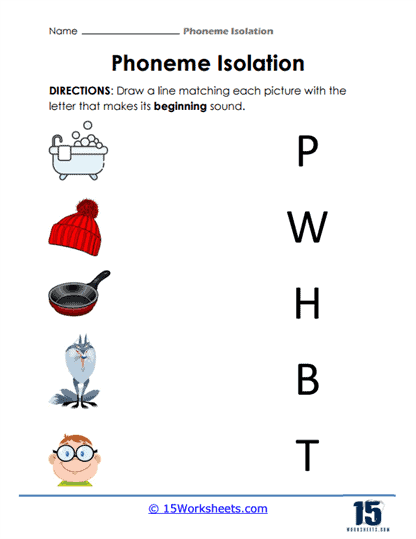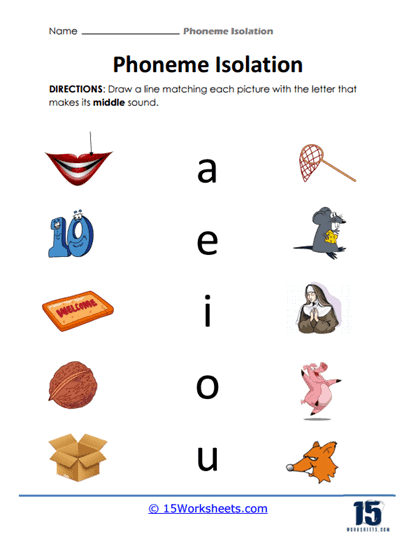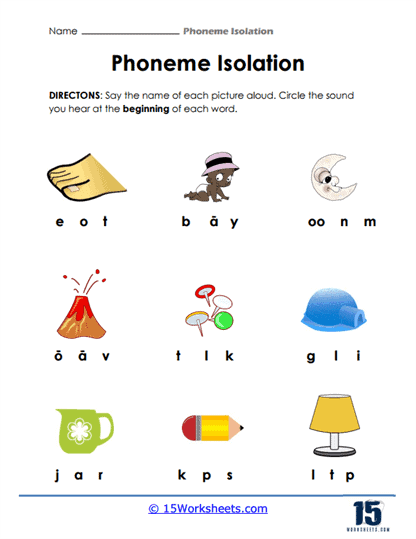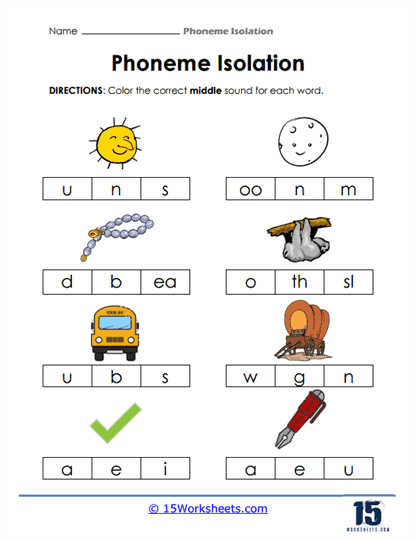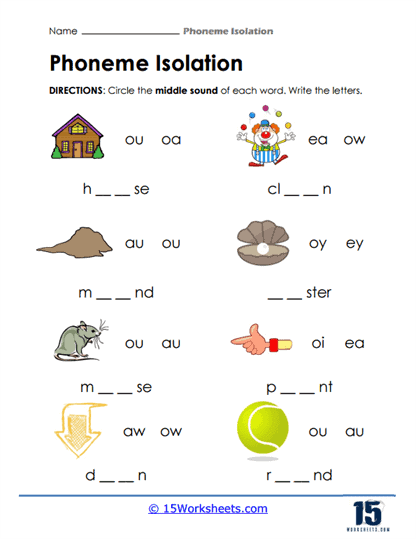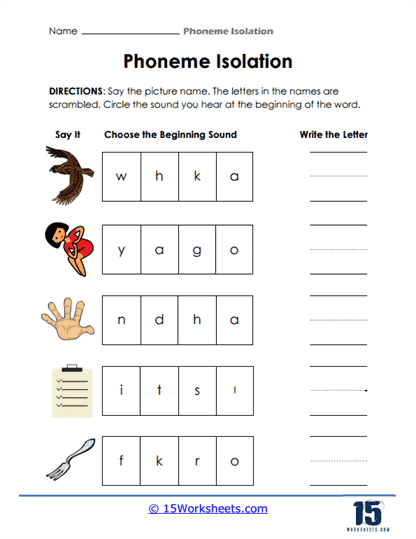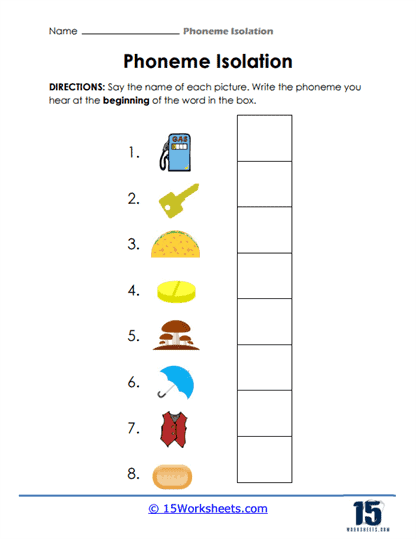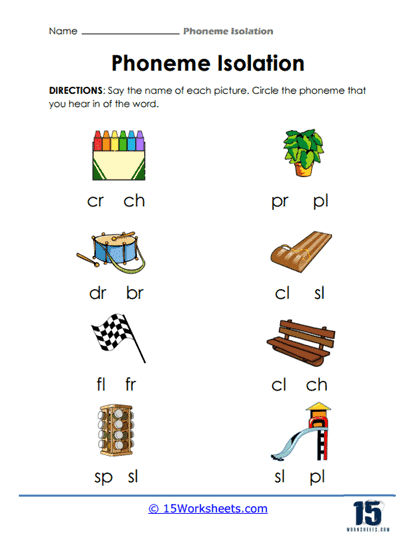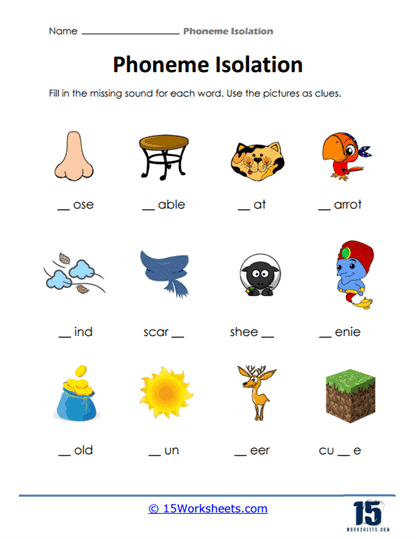Phoneme Isolation Worksheets
All About These 15 Worksheets
Phoneme isolation, a fundamental phonemic awareness skill, lays the foundation for reading and language development. This skill involves the ability to recognize and isolate individual phonemes, or the smallest units of sound in language.
To support students in mastering this essential skill, we present a collection of Phoneme Isolation worksheets. These worksheets have been thoughtfully designed to provide students with structured and engaging opportunities to practice and refine their phoneme isolation skills.
What are Phoneme Isolation Worksheets?
Phoneme Isolation Worksheets are educational resources designed to help students practice and learn phoneme isolation, which is the ability to identify the individual sounds or phonemes in words. These worksheets often include various activities, such as matching, sorting, or writing exercises, that focus on the sounds of the letters of the alphabet and how they combine to form words.
What Is Phoneme Isolation?
Phoneme isolation is the ability to identify and isolate individual speech sounds, or phonemes, within spoken words. It is an essential skill in phonemic awareness, which is the understanding that words are made up of distinct sounds that can be manipulated and combined to create meaning. Phoneme isolation involves recognizing and distinguishing the initial (beginning), medial (middle), and final (ending) sounds in a word.
In phonics instruction, phoneme isolation is important for the following reasons:
Reading Development – Developing phoneme isolation skills helps students to recognize the individual sounds that make up words, which is crucial for learning to read and decode unfamiliar words.
Phonemic Awareness – Phoneme isolation contributes to phonemic awareness, enabling learners to understand the relationship between sounds and letters, and how these sounds can be combined and manipulated to create words.
Spelling and Writing – Phoneme isolation helps students to spell and write words correctly by understanding the sounds that make up each word. It also aids in identifying and correcting spelling errors based on the sounds within a word.
Listening Skills – Developing phoneme isolation skills improves learners’ listening abilities, as they become more adept at recognizing and distinguishing between different sounds in spoken language.
How To Teach Phoneme Isolation To Students
To teach phoneme isolation effectively, educators should:
- Introduce individual phonemes and their corresponding letters or letter combinations, focusing on the most common sounds in English.
- Model phoneme isolation by identifying the initial, medial, and final sounds in spoken words.
- Provide ample opportunities for students to practice isolating sounds in words, starting with simple CVC (consonant-vowel-consonant) words and gradually progressing to more complex words.
- Use multisensory techniques to engage learners, such as using letter tiles, magnetic letters, or asking students to tap out the sounds as they isolate them.
- Create engaging activities and games that focus on phoneme isolation, such as sound sorting or matching, and “I Spy” games that involve identifying words with specific initial, medial, or final sounds.
By teaching phoneme isolation and providing consistent practice, educators can help students develop strong phonemic awareness skills that will serve as a foundation for successful reading and writing development.
This collection of Phoneme Isolation worksheets is a valuable resource for educators and parents committed to supporting their students’ phonemic awareness and literacy development. Proficiency in phoneme isolation is not just an academic exercise; it’s a fundamental skill that opens the doors to reading fluency, comprehension, and effective communication.
By using these engaging worksheets, students will strengthen their ability to isolate phonemes with confidence, ultimately improving their overall language proficiency and literacy skills. This collection is an investment in their future success, ensuring they have a solid foundation in phoneme isolation and language skills.

